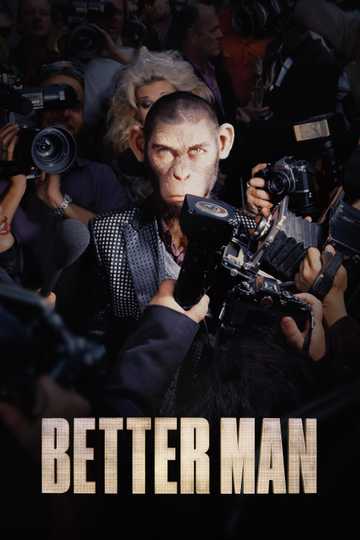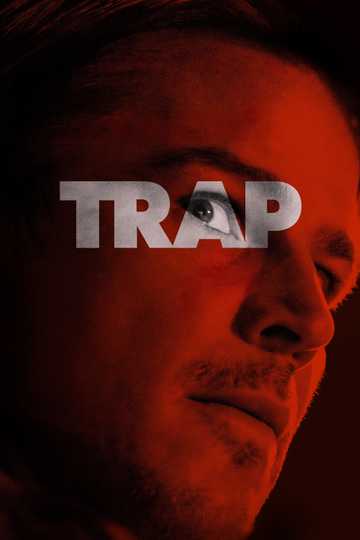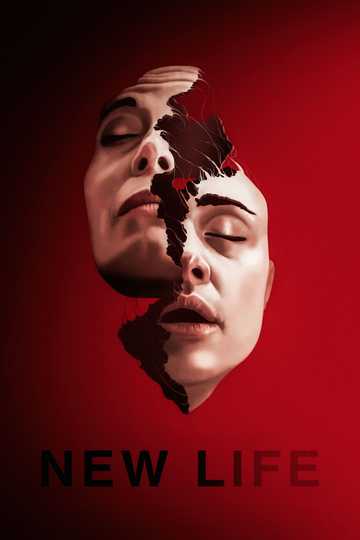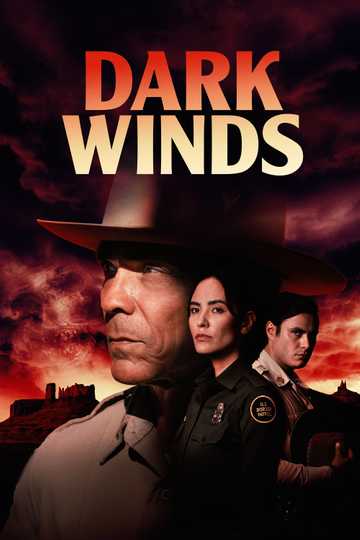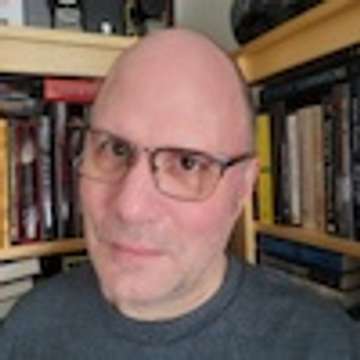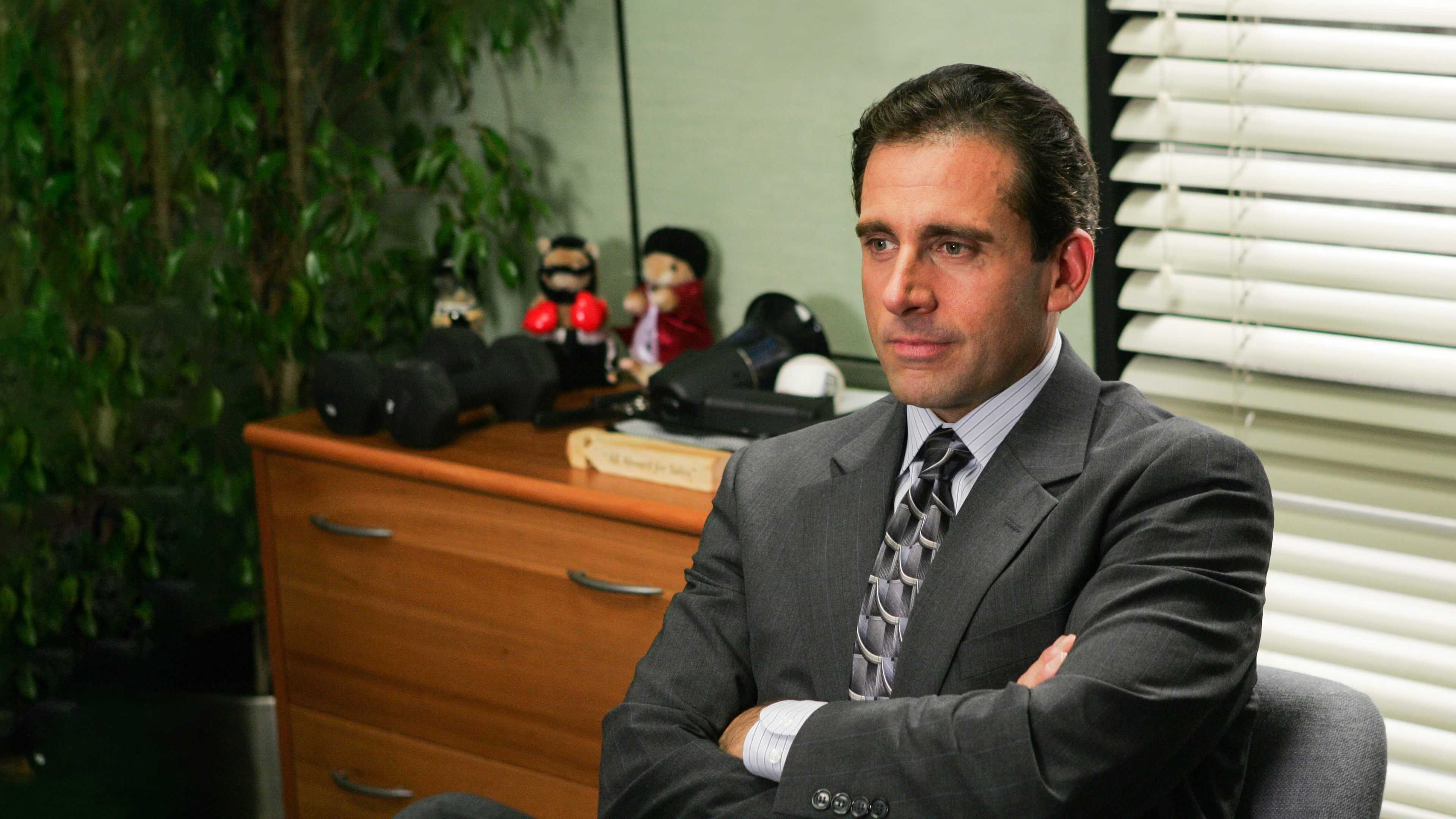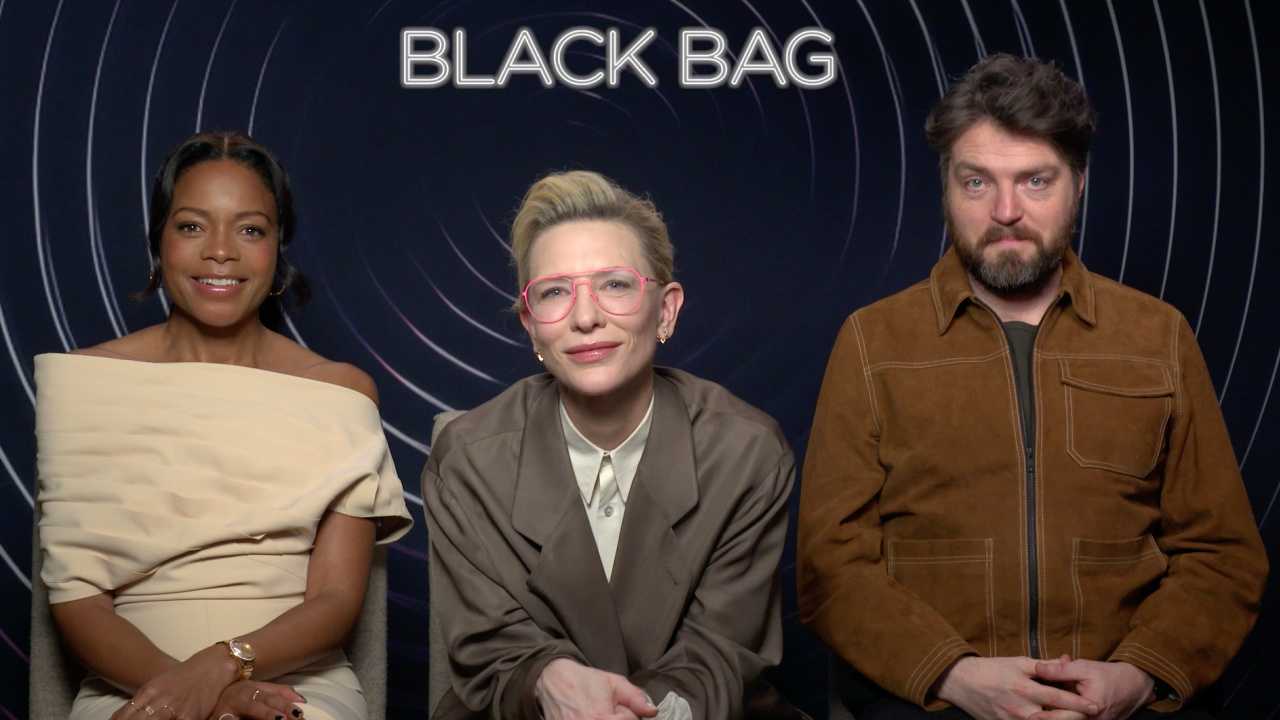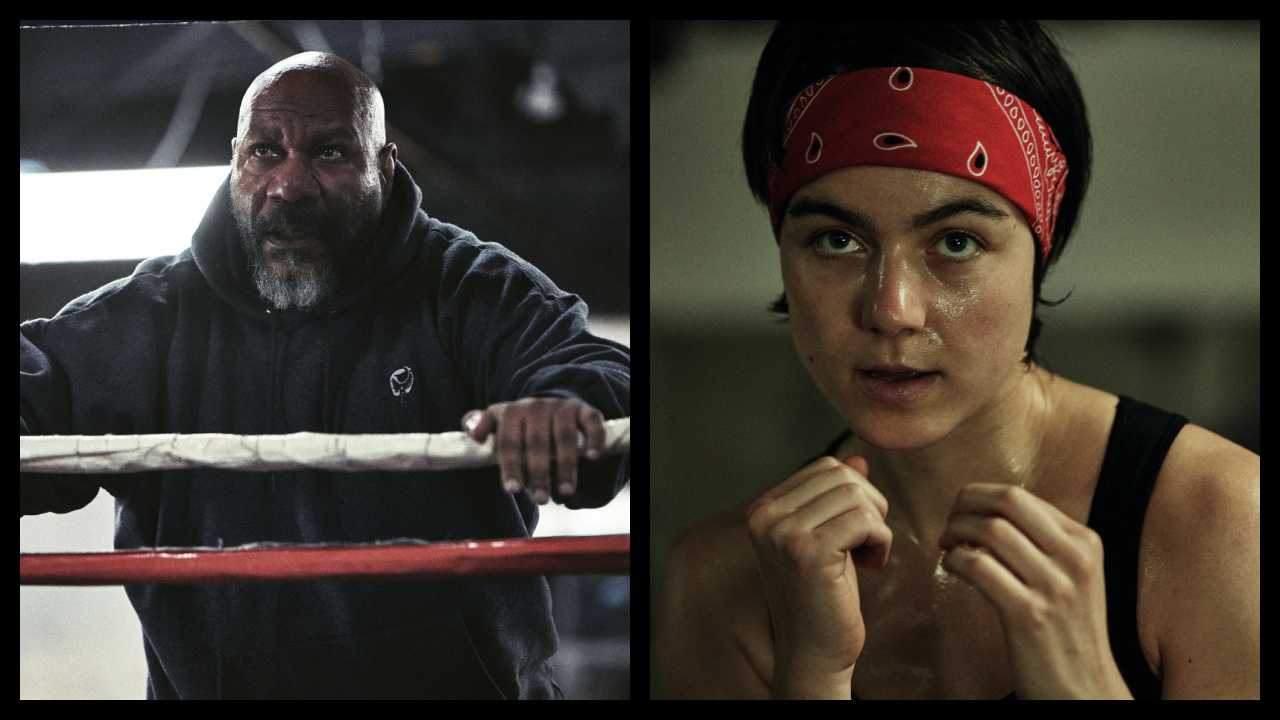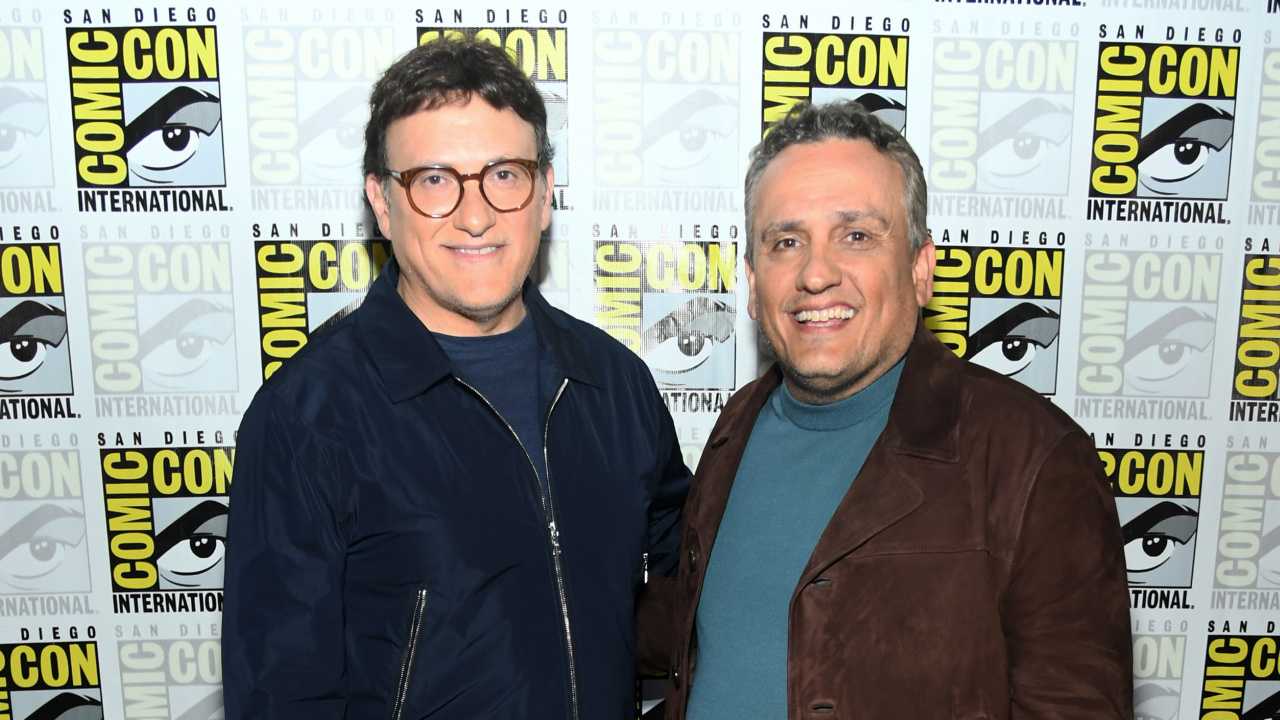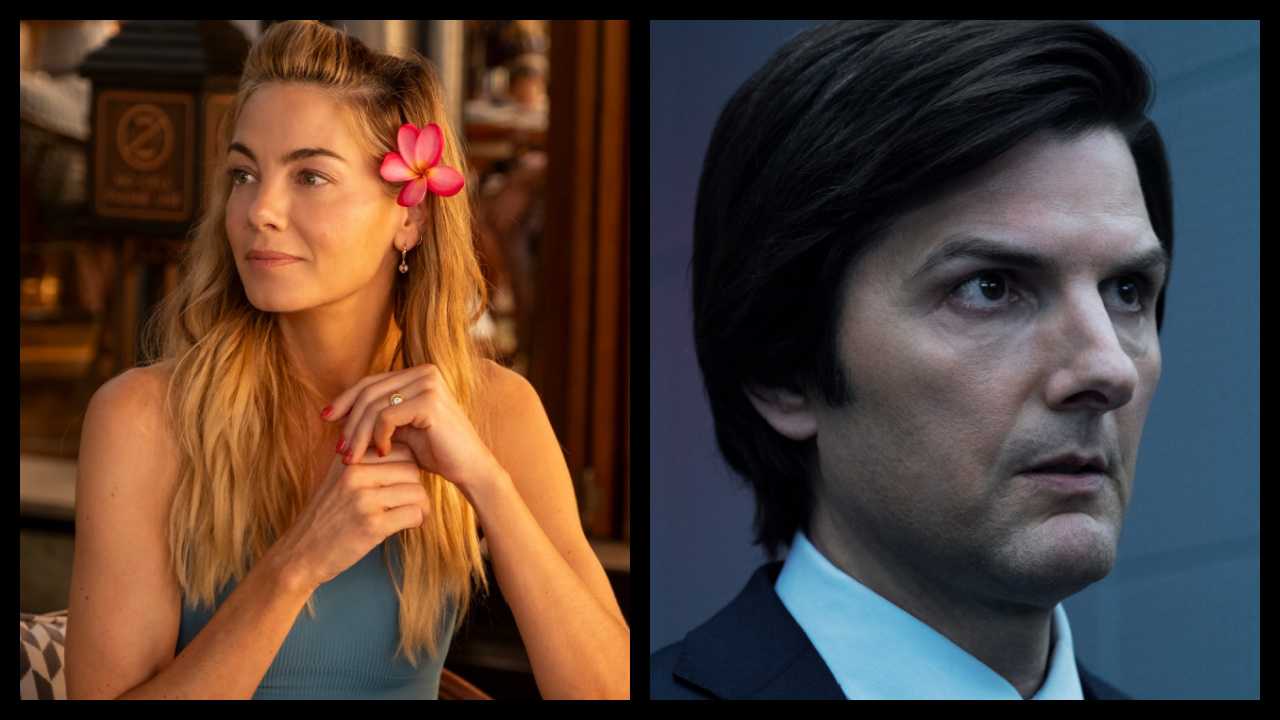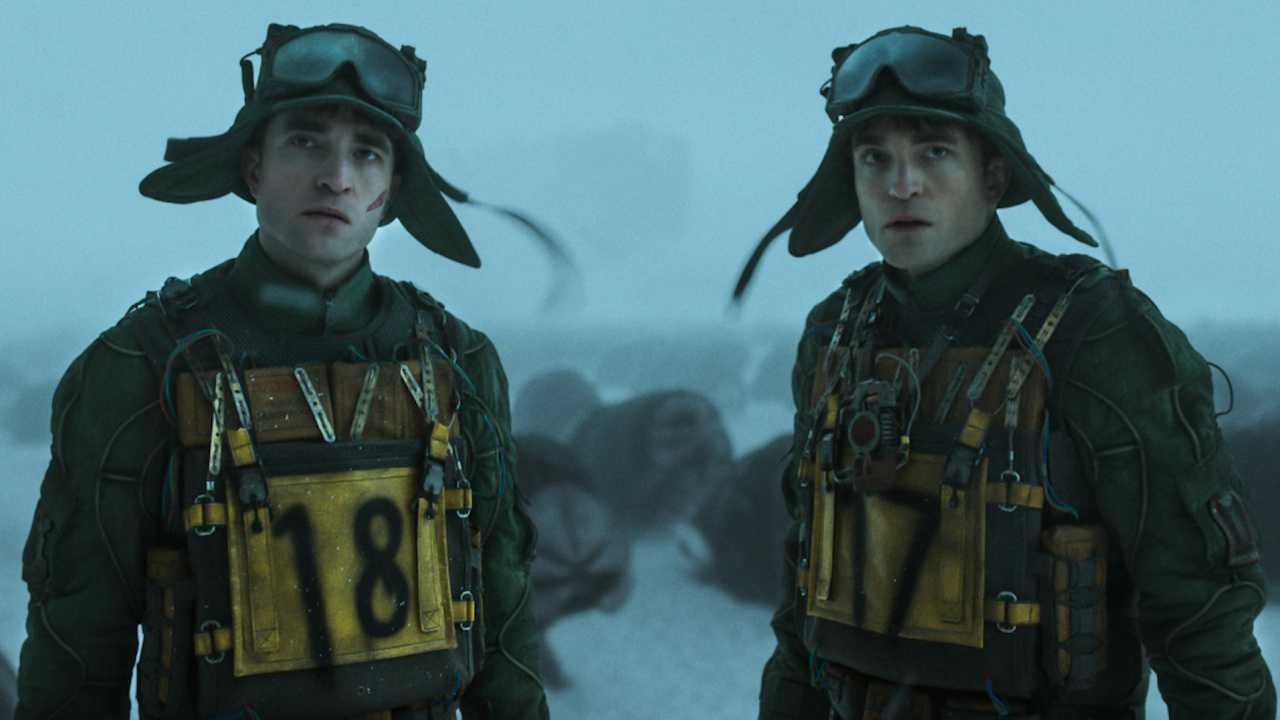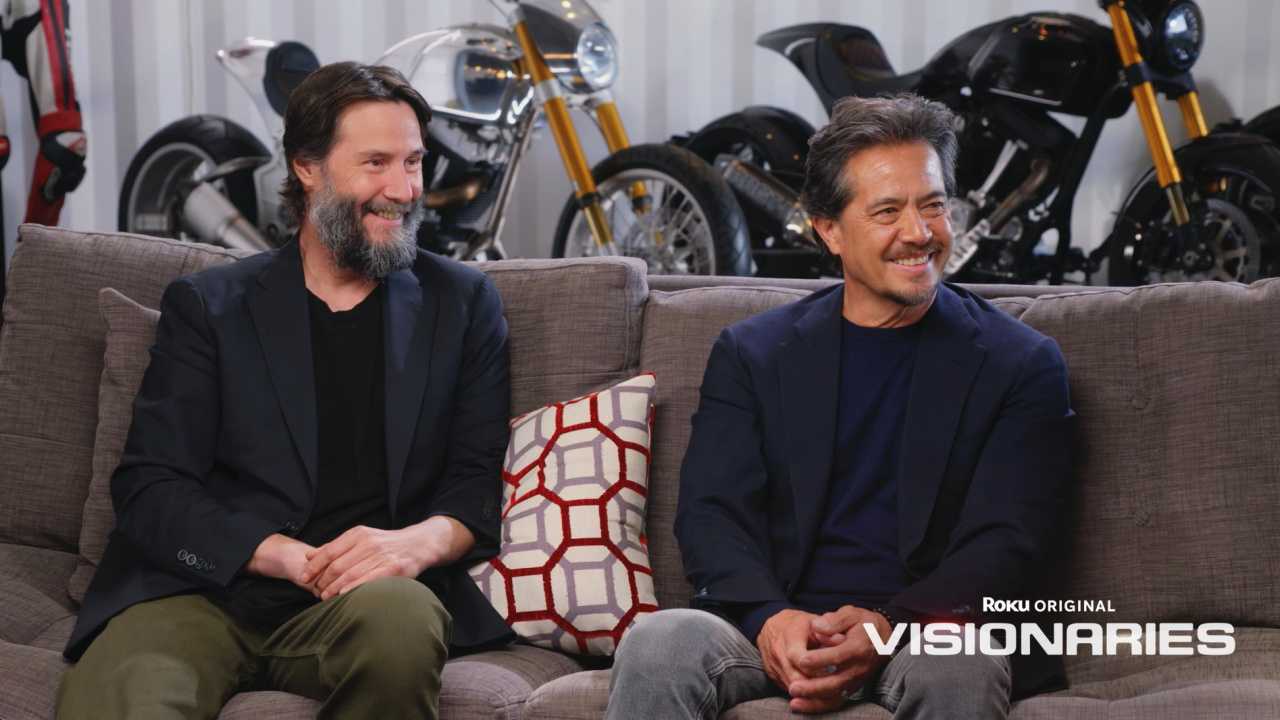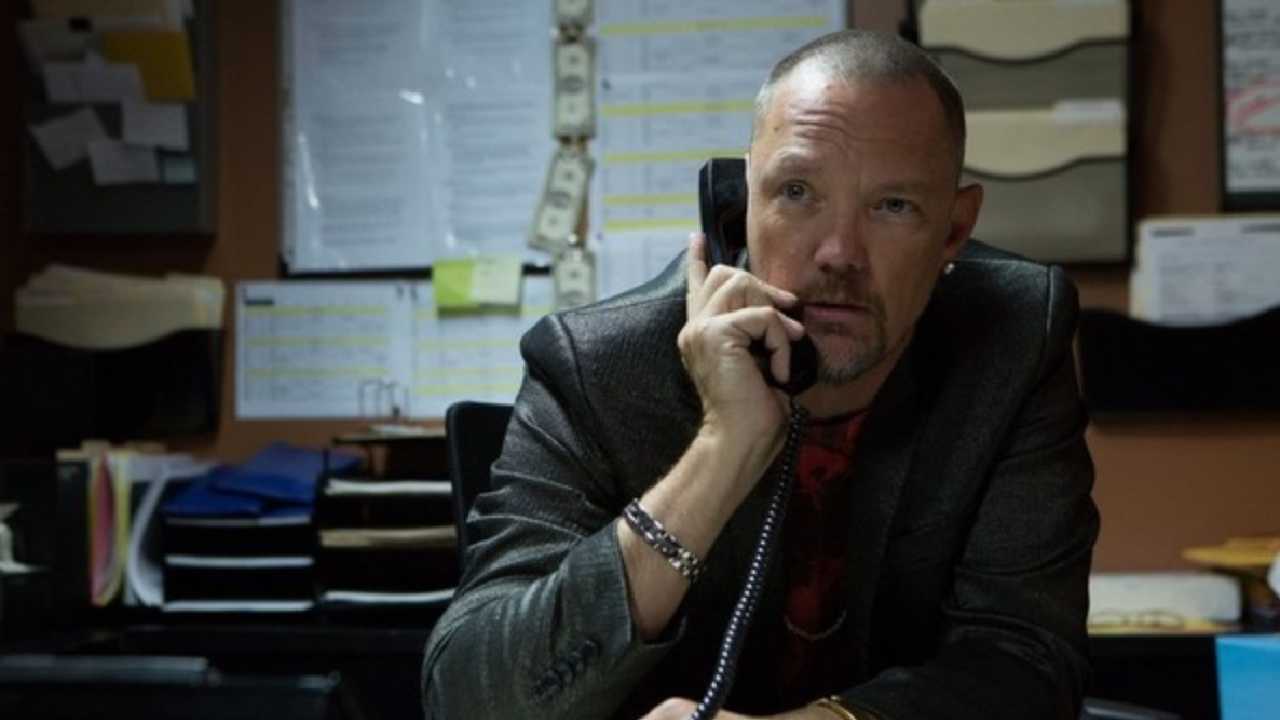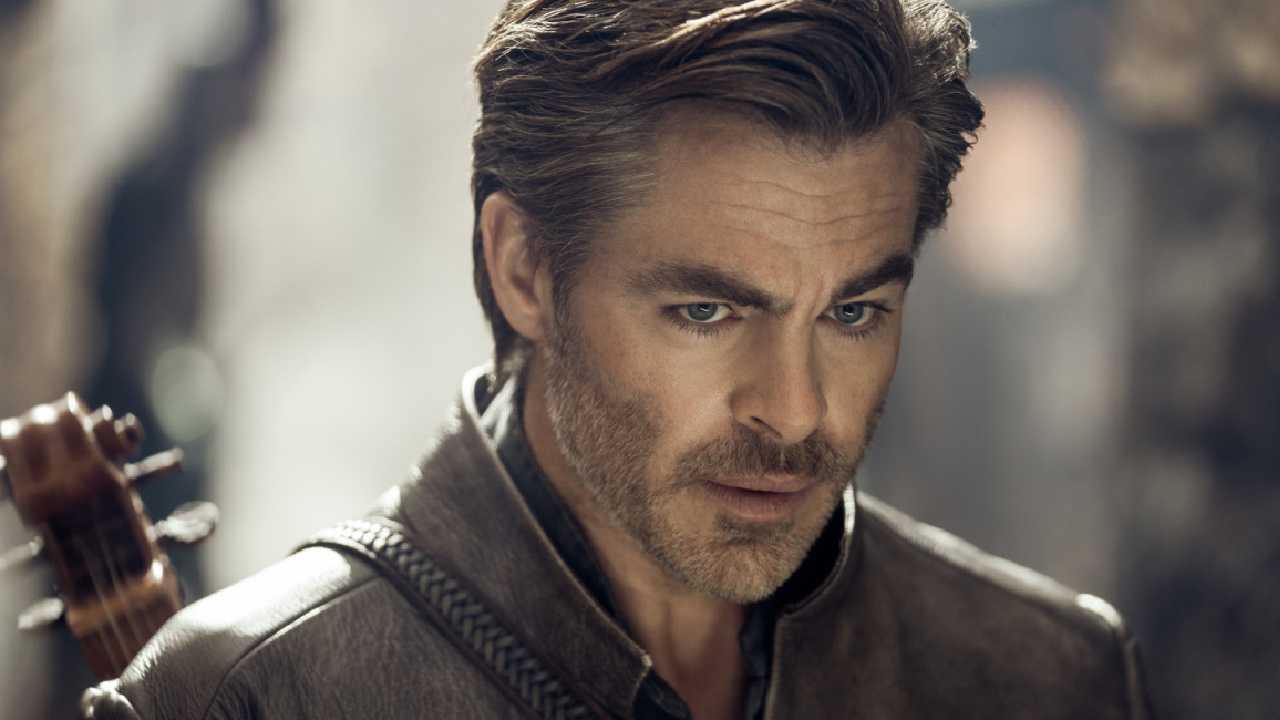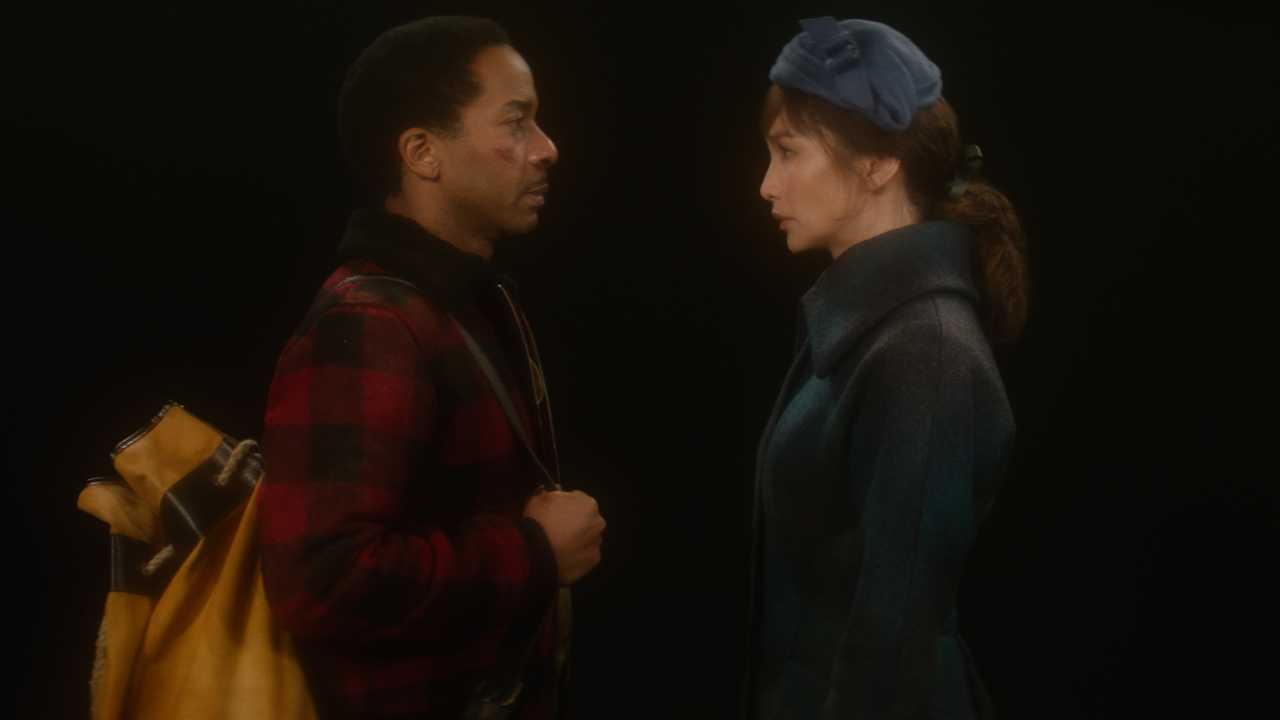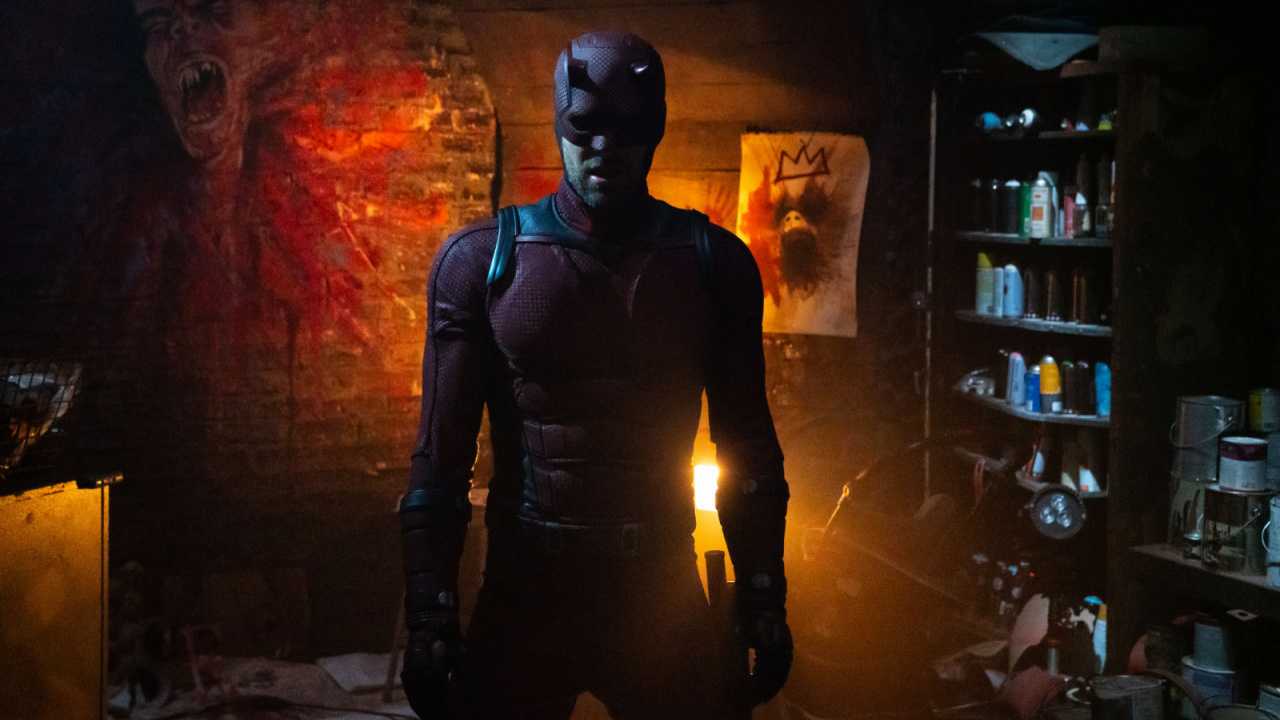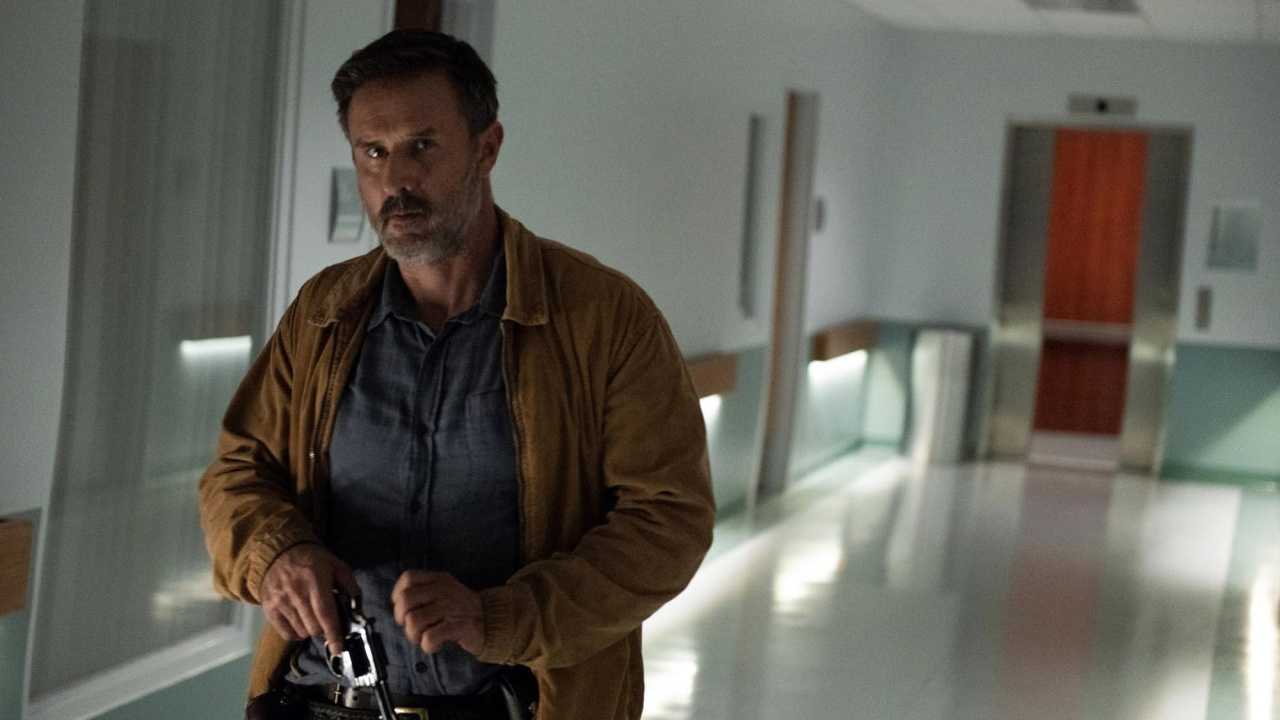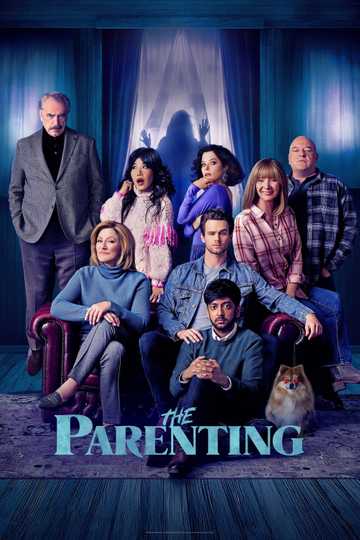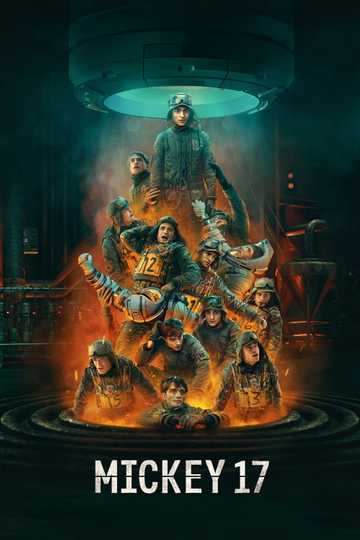‘I Saw the TV Glow’ Peers at the Dark Side of Nostalgia and Suburbia
Reality cracks wide open in ‘I Saw the TV Glow,’ an eerie and evocative tale steeped in ‘90s pop culture nostalgia and the pain of self-realization.
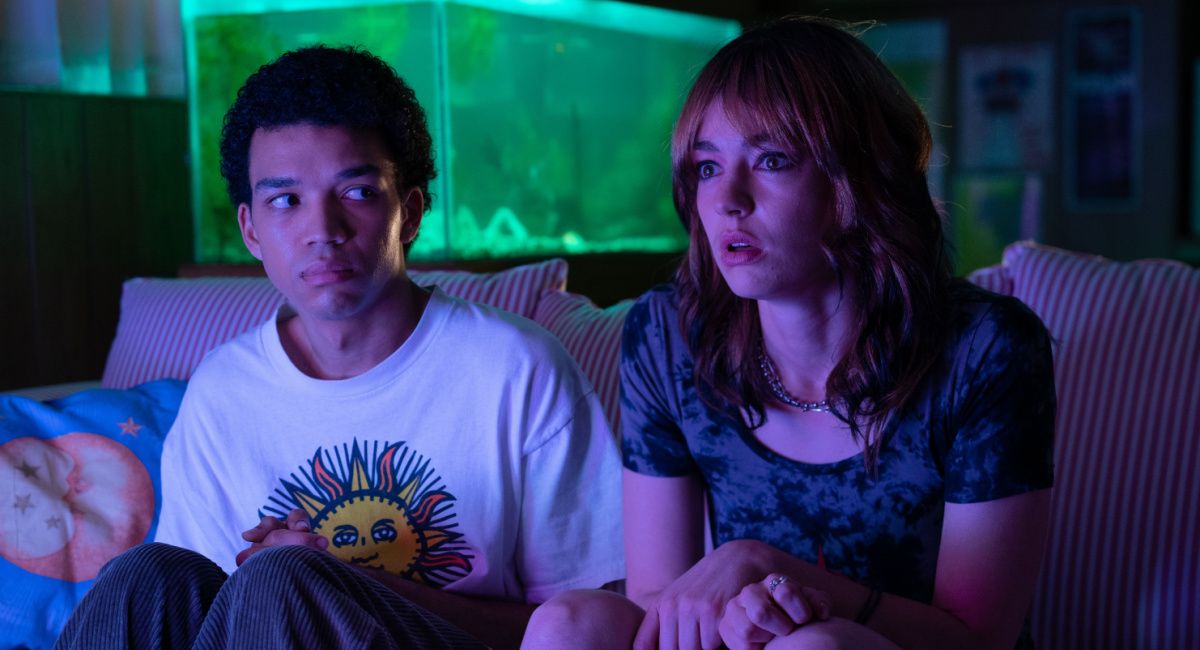
(Left) Justice Smith in 'I Saw the TV Glow'. Photo: A24.
Opening in theaters on May 3rd is ‘I Saw the TV Glow,’ directed by Jane Schoenbrun and starring Justice Smith, Brigette Lundy-Paine, Helena Howard, Fred Durst, Danielle Deadwyler, Lindsey Jordan, and Amber Benson.
Related Article: Justice Smith and An-Li Bogan Talk 'The American Society of Magical Negroes'
Initial Thoughts
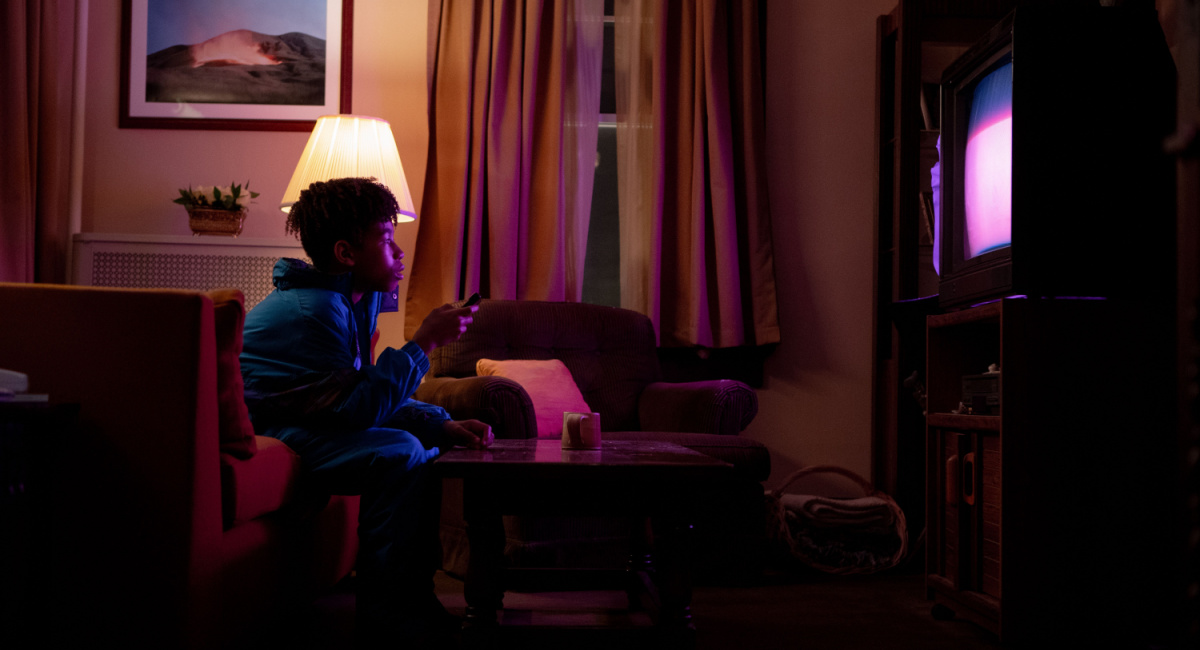
'I Saw the TV Glow'. Photo: A24.
Horror, reality-bending fantasy, and a whole lot of ‘90s nostalgia come together in ‘I Saw the TV Glow,’ the second full-length feature film written and directed by Jane Schoenbrun, who made their debut in 2021 with the creepy, pandemic-infused ‘We’re All Going to the World’s Fair.’ This time out, Schoenbrun takes their cues from David Lynch, ‘Donnie Darko,’ and weird ‘90s kids television to tell a story of suburban apathy and gender dysphoria that’s both haunting and poignant, even if it may seem obscure to some viewers.
Story and Direction
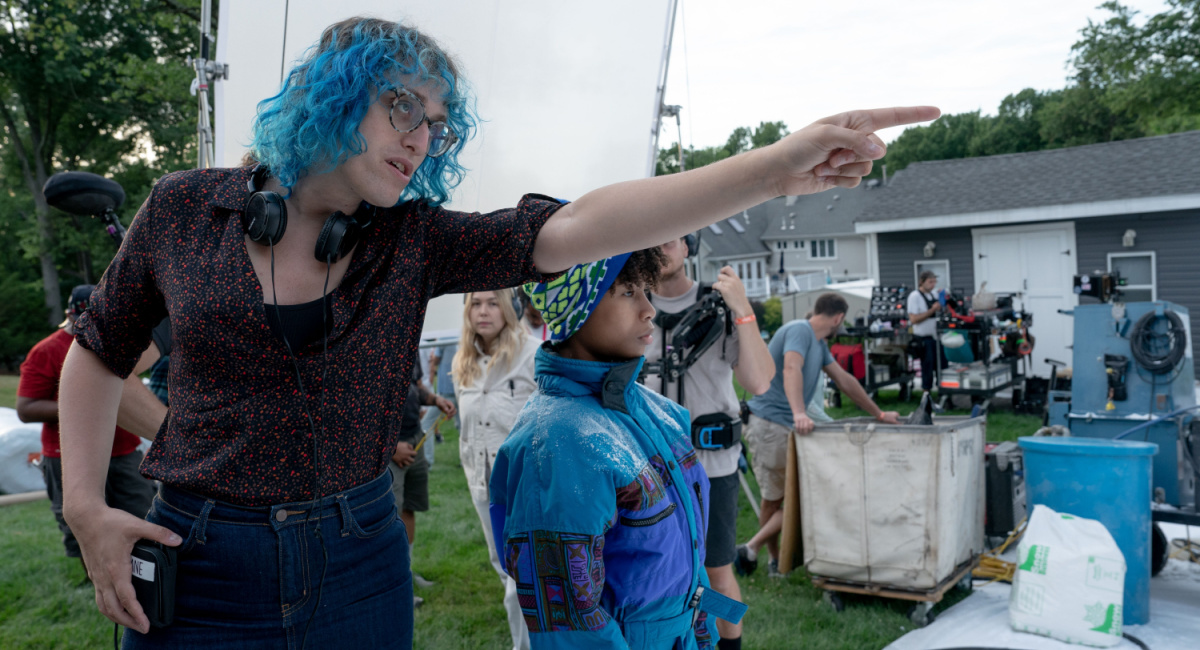
Director Jane Schoenbrun on the set of 'I Saw the TV Glow'. Photo: A24.
In a drab, unnamed suburb that already seems like an alternate universe where everyone is half-dead, Owen (played as a young boy by Ian Foreman and as a teen by Justice Smith) bonds with an older teen named Maddy (Brigette Lundy-Paine) over their shared interest in a kids’ TV show called ‘The Pink Opaque.’ Owen’s fascination derives from seeing commercials for the show, since his parents say it’s on too late for him to watch (“Isn’t that a show for girls?” sneers his father, played by Limp Bizkit frontman Fred Durst with a distant, icy menace).
Maddy, however, is hooked, toting around an episode guide like her own personal Bible and eventually having Owen sneak over to watch it with her under the pretense of him going to a friend’s house for a sleepover (she later passes him VHS tapes of the ones he misses). The show itself looks like so many of the cheap, cheesy, lo-fi “young adult” programs (and later, more sophisticated ones like ‘Buffy’) that proliferated in the ‘90s on Nickelodeon and other basic cable channels, centering around two girls, Isabel (Helena Howard) and Tara (Lindsey Jordan), who meet at summer camp and share a psychic link that allows them to battle all kinds of monsters – and an overarching big bad called Mr. Melancholy – without even meeting up again.
It’s soon clear that Isabel and Tara are embodiments of a different existence for Owen and Maddy, and that the TV characters’ embrace of their powers and true selves is something that the real-life friends both yearn for. But only Maddy takes action, abruptly disappearing from town just as ‘The Pink Opaque’ is canceled. When she eventually resurfaces to a shocked older Owen, she tells him that the world of ‘The Pink Opaque’ is actually real – and that the reality they inhabit may be the fictional one.
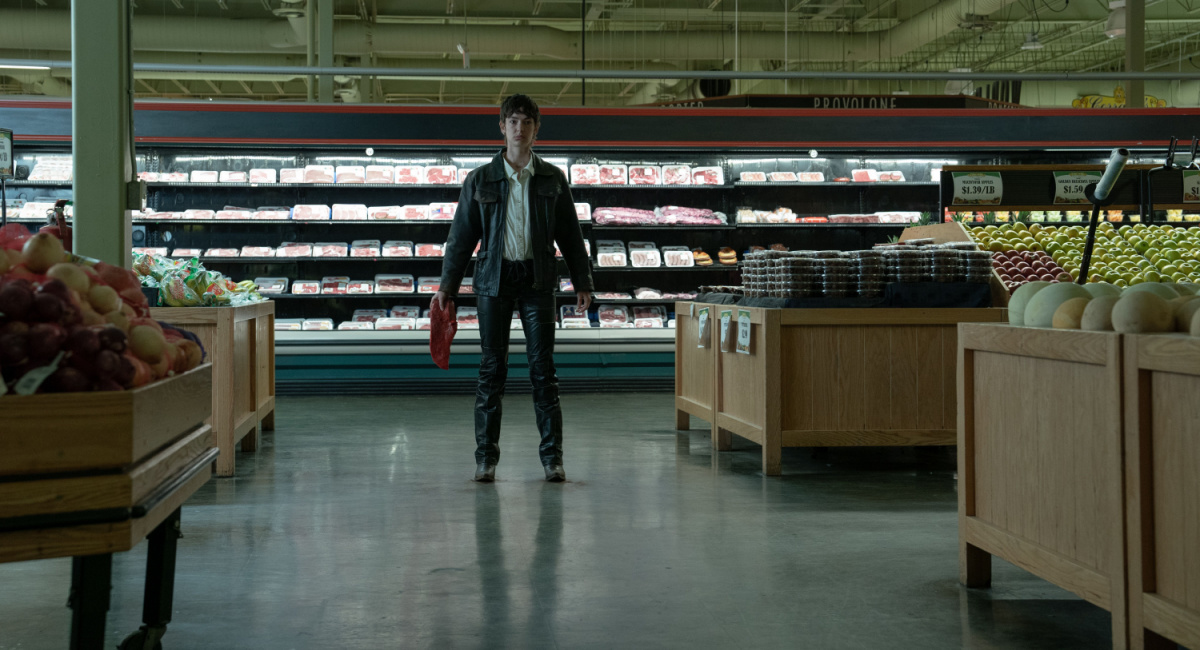
'I Saw the TV Glow'. Photo: A24.
Has Maddy gone mad? What is the truth? Owen doesn’t know for sure, but he does sense that something is wrong, and that there is a version of him that does not want to slide down the same suburban path to dissolution that he sees all around him. As Owen’s world begins to shift and change, Schoenbrun allows the film to mutate with it: sometimes Owen addresses the audience directly, while the lines between his reality and another seem to cross, merge, and blur in a hallucinogenic whirl of imagery that flickers in and out of the ‘Pink Opaque.’
Schoenbrun directs all this as if they are both inside Owen’s world and outside of it, coolly observing his twisting journey with detachment while also allowing us to feel the rawness of his emotions and the terror he feels as he is literally pulled in two directions. The director also captures the bittersweet tang of memory, especially in a later scene where an older, defeated Owen finds a rerun of ‘The Pink Opaque’ on late-night TV and suddenly sees it for the amateurish, chintzy production it really is —even though his childhood memory of it was magical.
Much of the final act of the film plays out in the arid Fun Center – which is anything but – where Owen works. It’s there that part of Schoenbrun’s theme, that suburbia is a draining hellspace of alienation, comes on most heavily, but the director doesn’t seem to have much to say about it that’s new. The other part of the director’s thesis, however, is much more personal and may get lost on viewers who don’t have the same lived experience.
Self-Realization
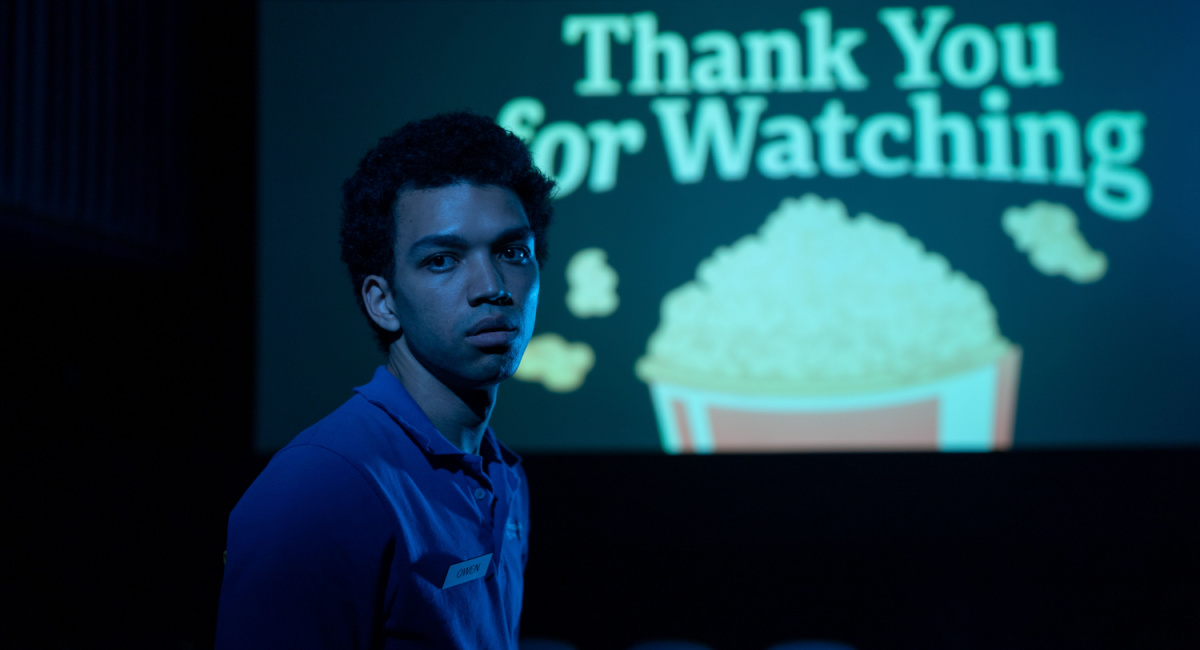
Justice Smith in 'I Saw the TV Glow'. Photo: A24.
‘I Saw the TV Glow’ is an allegory about the “egg crack,” the moment in which a trans person suddenly and clearly sees that who they are inside may no longer match up with what the world sees on the outside. Schoenbrun’s own personal journey as a trans person is embedded into the film, while Owen and Maddy are two people who are going through the same thing – represented by the way in which they relate to the characters of Isabel and Tara on ‘The Pink Opaque.’
One of them, Maddy, is becoming more comfortable with who she is already, embracing the idea that she can step into another world and live honestly. A confused and desperate Owen, meanwhile, sees the truth within his grasp but can’t quite pry himself away from the conventional story that he feels he has to live. “Do you like girls?” Maddy quizzes him at one point, after letting him know where she stands. “I don’t know,” says Owen haltingly. When Maddy asks if he prefers boys, Owen replies, “I think I like TV shows…When I think about that stuff, I feel like someone took a shovel and dug out my insides.”
Smith (‘Jurassic World: Dominion’) and Lundy-Paine (‘Bill & Ted Face the Music’) give these conflicted characters real warmth and depth. Lundy-Paine gives Maddy an initial guardedness that turns into steely determination and eventually an otherworldly aura, while Smith is achingly sad and also affectingly sweet as the tormented Owen, effectively communicating through both his physicality and makeup how Owen seems to fold into himself as the years go by, leading to a wrenching finale.
Final Thoughts
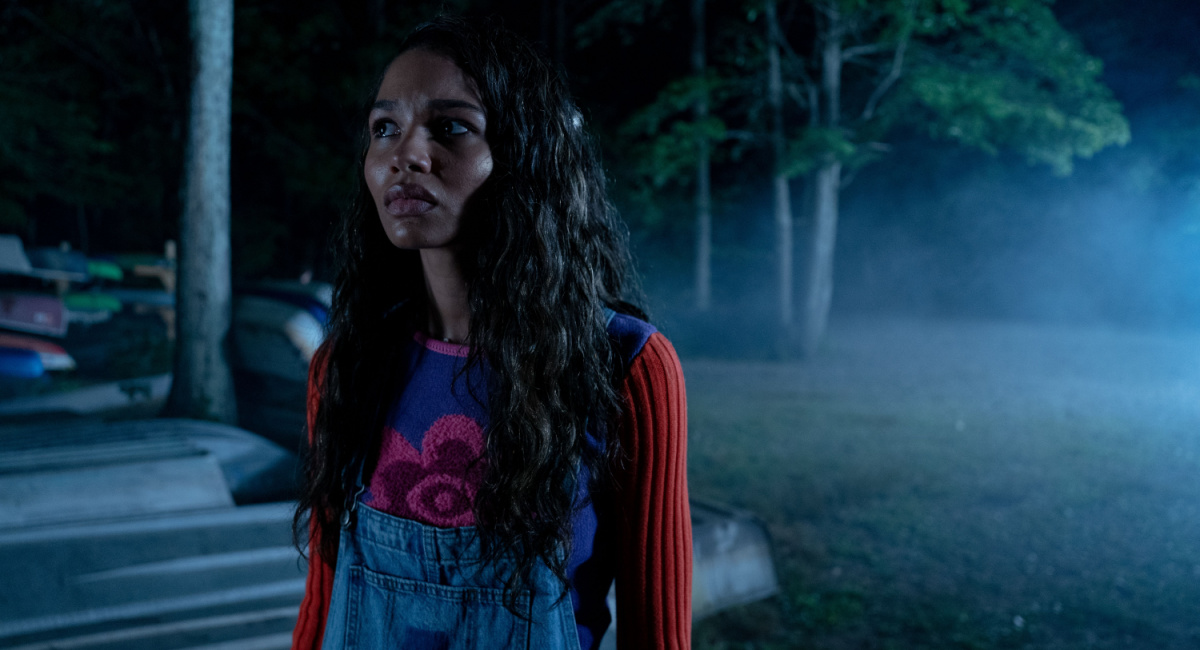
'I Saw the TV Glow'. Photo: A24.
In many ways, ‘I Saw the TV Glow’ is independent filmmaking in the truest sense, a film that is very much a deeply personal vision filtered through an experimental narrative and dream-like visual imagery. If some of its ideas are somewhat shopworn – we’ve been told many times by many movies how soul-deadening suburbia can be – other concepts, like finding one’s true self, are relevant right this minute as trans and LGBTQ+ people are increasingly under fire for expressing just that. Even without that subtext, Jane Schoenbrun’s fever dream is compelling, frequently unnerving viewing that will strike different chords with everyone who sees it.
‘I Saw the TV Glow’ receives 7.5 out of 10 stars.

What is the plot of ‘I Saw the TV Glow’?
Loners in their arid ‘90s suburban enclave and outcasts in their tribal school system, Owen (Ian Foreman and Justice Smith) and Maddy (Brigette Lundy-Paine) forge a bond over their love of a weekly “young adult” program called ‘The Pink Opaque.’ But when Maddy disappears, Owen realizes that their connection to the show might be more than mere fandom – and that the very nature of reality may be starting to crumble around them.
Who is in the cast of ‘I Saw the TV Glow’?
- Justice Smith as Owen
- Brigette Lundy-Paine as Maddy
- Helena Howard as Isabel
- Fred Durst as Frank
- Danielle Deadwyler as Brenda
- Lindsey Jordan as Tara
- Amber Benson as Johnny Link's Mom
- Ian Foreman as younger Owen
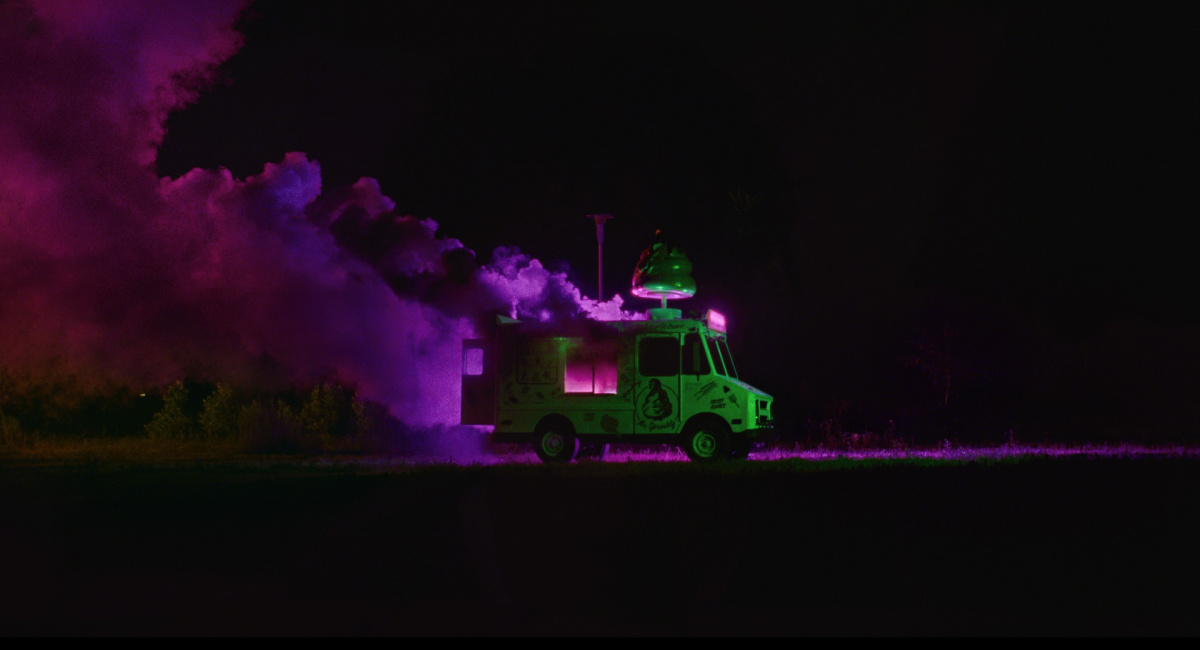
'I Saw the TV Glow'. Photo: A24.
Other Justice Smith Movies:
- 'Paper Towns' (2015)
- 'Every Day' (2018)
- 'Jurassic World: Fallen Kingdom' (2018)
- 'Pokémon Detective Pikachu' (2019)
- 'All the Bright Places' (2020)
- 'The Voyeurs' (2021)
- 'Ron's Gone Wrong' (2021)
- 'Jurassic World Dominion' (2022)
- 'Sharper' (2023)
- 'Dungeons & Dragons: Honor Among Thieves' (2023)
- 'The American Society of Magical Negroes' (2024)
Buy Justice Smith Movies on Amazon

